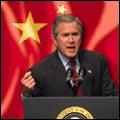



**IMPORTANT DISCLAIMER: The views expressed herein are my own and in no way relfect the views of my employer or other affiliates. Links to or from other websites of individuals or organizations do not constitute an endorsement of these views. All written material is copyrighted. And no, I don't have an EBay Store.
